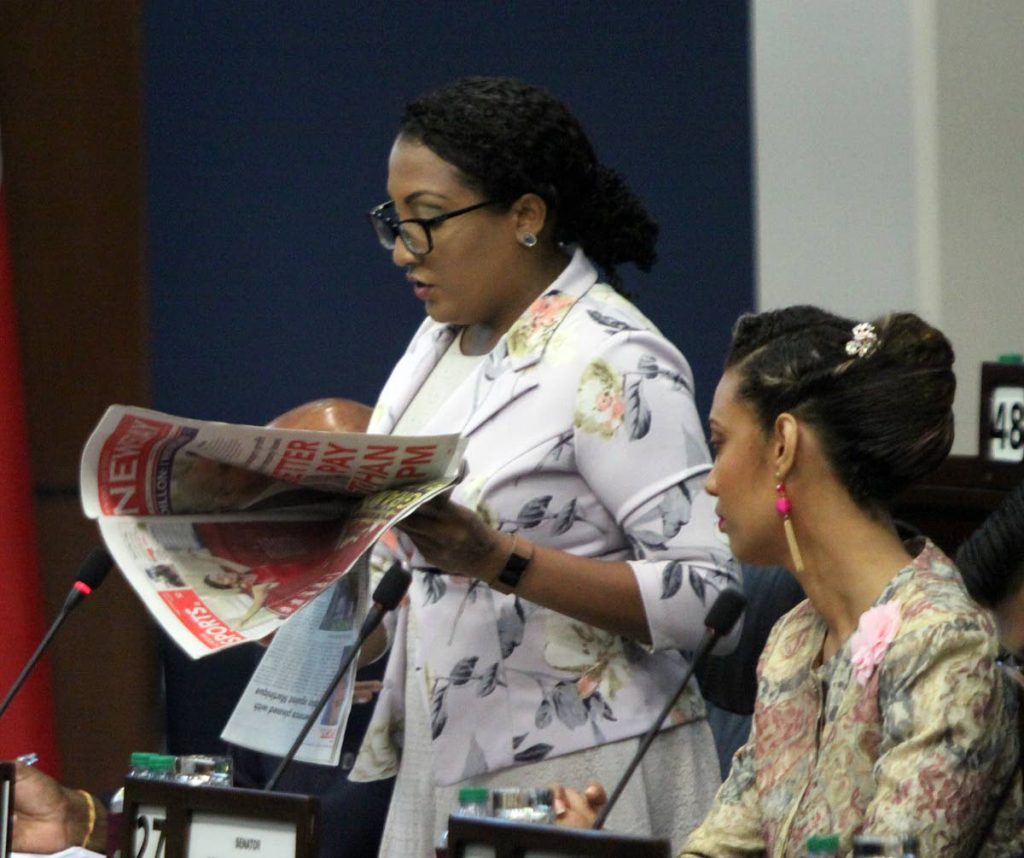Haynes: Too much inequality in schools

FROM as young as primary school, mainstream pupils are separated out into “A,” “B” or “C” grades, so what are the chances that those schools cater to those special-needs pupils, wondered Opposition Senator Anita Haynes.
In Tuesday's Senate debate on a private motion to give more resources to challenged pupils, she called for more honesty in recognising the inequalities that exist in the education system, rather than sweeping them under the carpet.
Revealing she has a 32-year-old cousin who has special needs but had received a good, inclusive schooling in Austin, Texas, Haynes asked what would have happened to her cousin if she had attended school in TT.
She sought to answer the question by drawing on her own experiences, as she related her own days in primary school in a forthright and heartfelt way.
“Are we really going to say, if we are honest about what is happening in TT, it is about the same? What would have been her lived experience? That she’d be included in the system?
"Never happen!"
She said to answer this question, you could pick your school.
“In my primary school there was an A class, B class and C class – literally students who got As, students who got Bs and students who got C’.
“The attention paid to the A-class students was vastly different to that paid to the others.
“We were told, ‘You are the A class. You cannot spent recess liming with them. They are not going anywhere.' That is the system. You never heard of it? It is real.”
Haynes said pupil grading extended to secondary schools.
“Even in secondary schools, you group together scholarship students. You say, ‘These are the persons more likely to get scholarships, so these are the ones most deserving of attention.'”
Haynes implored senators to honestly see these flaws in the school system, as the only way it can be fixed. “It requires honesty, it requires discourse, and that’s the only way it can be fixed, not by sweeping it under the carpet.”
“So if that is the system for (mainstream) students of varying learning abilities on the ‘normal' spectrum, are we then saying this very same system is designed to be inclusive of students with special needs? That this system, that could separate students based on what is your chance of achieving a scholarship, that this system is designed to be inclusive of students with varying learning disabilities? That cannot be an honest response to what Senator Richards was asking.”

Comments
"Haynes: Too much inequality in schools"